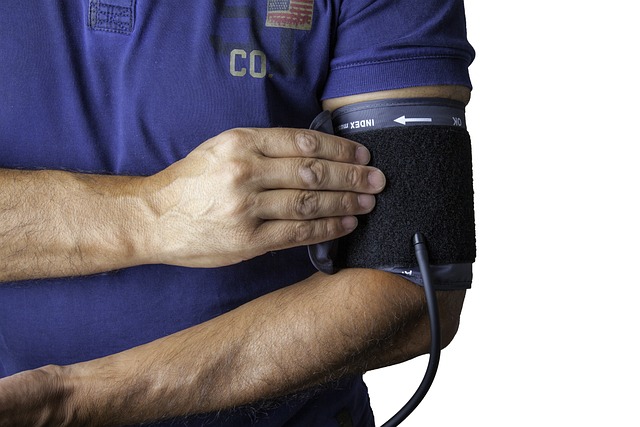Top 5 Foods to Cut from Your Diet if You Have Diabetes
Managing diabetes effectively often involves making smart dietary choices. For individuals living with diabetes in the United Kingdom, understanding which foods to avoid can be crucial in maintaining stable blood sugar levels and overall health. This article will explore the top five foods that people with diabetes should consider cutting from their diet, as well as healthier alternatives to help you make informed decisions about your nutrition.

What role does diet play in managing diabetes?
Diet plays a pivotal role in managing diabetes. The foods we consume directly impact our blood glucose levels, which is particularly important for individuals with diabetes. By carefully selecting what we eat, we can help regulate blood sugar, reduce the risk of complications, and improve overall well-being. A balanced diet, rich in nutrients and low in foods that cause rapid spikes in blood sugar, is essential for effective diabetes management.
Which sugary beverages should diabetics avoid?
Sugary beverages are one of the primary foods to avoid if you have diabetes. These drinks, including fizzy sodas, sweetened teas, and fruit juices, can cause rapid spikes in blood sugar levels due to their high sugar content and lack of fiber. Even seemingly healthy options like smoothies can be problematic due to their concentrated fruit sugars. Instead, opt for water, unsweetened tea, or sparkling water flavored with a splash of fresh lemon or lime juice. If you’re craving something sweet, try a small portion of whole fruit, which contains fiber to help slow down sugar absorption.
Why are refined carbohydrates a concern for diabetics?
Refined carbohydrates, such as white bread, pasta, and rice, are quickly broken down into sugar in the body, leading to rapid increases in blood glucose levels. These foods have been stripped of their fiber and nutrients during processing, making them less beneficial for overall health. For individuals with diabetes, it’s advisable to limit or avoid these refined carbs. Instead, choose whole grain alternatives like brown rice, whole wheat pasta, and quinoa, which have a lower glycemic index and provide more nutrients and fiber to help stabilize blood sugar levels.
How do processed meats affect diabetes management?
Processed meats, including bacon, sausages, and deli meats, are foods to avoid if you have diabetes. These products are often high in saturated fats and sodium, which can contribute to inflammation and increase the risk of cardiovascular complications – a particular concern for individuals with diabetes. Additionally, the preservatives and additives in processed meats may negatively impact insulin sensitivity. Opt for lean protein sources such as skinless chicken, fish, legumes, or tofu to support better blood sugar control and overall health.
What desserts and sweets should diabetics limit?
While it’s natural to crave something sweet, traditional desserts and sweets can be particularly problematic for individuals with diabetes. Cakes, biscuits, chocolates, and ice cream are typically high in sugar and unhealthy fats, leading to rapid blood sugar spikes and potential weight gain. However, this doesn’t mean you can never enjoy a treat. Consider healthier alternatives such as fresh berries with a dollop of Greek yogurt, sugar-free jelly, or a small piece of dark chocolate (70% cocoa or higher). When indulging in sweeter treats, be mindful of portion sizes and incorporate them into your overall meal plan.
Are there any surprising foods that can impact blood sugar?
Some foods that may seem healthy can still have a significant impact on blood sugar levels. For example, dried fruits, while nutritious, are concentrated sources of natural sugars and should be consumed in moderation. Similarly, some breakfast cereals marketed as “healthy” can be high in added sugars. Always check food labels and be wary of “low-fat” products, as they often contain added sugars to enhance flavor. Surprisingly, artificial sweeteners, while not directly raising blood sugar, may affect insulin sensitivity and gut bacteria, potentially impacting long-term blood sugar control.
When managing diabetes, it’s crucial to work with healthcare professionals to create a personalized meal plan. While avoiding certain foods is important, focusing on a balanced diet rich in vegetables, lean proteins, whole grains, and healthy fats is equally vital. Remember that moderation and portion control play key roles in maintaining stable blood sugar levels.
Here’s a comparison of common food choices and their healthier alternatives for individuals with diabetes:
| Food Category | Foods to Avoid | Healthier Alternatives |
|---|---|---|
| Beverages | Sugary sodas, sweetened teas | Water, unsweetened tea, sparkling water with lemon |
| Carbohydrates | White bread, white rice | Whole grain bread, brown rice, quinoa |
| Proteins | Processed meats (bacon, sausages) | Skinless chicken, fish, legumes, tofu |
| Desserts | Cakes, biscuits, ice cream | Fresh berries with Greek yogurt, sugar-free jelly |
| Snacks | Crisps, sweetened granola bars | Nuts, vegetable sticks with hummus, apple slices with peanut butter |
By making informed food choices and working closely with healthcare providers, individuals with diabetes can effectively manage their condition and maintain a healthy, balanced diet. Remember, small changes in your eating habits can lead to significant improvements in your overall health and well-being.
This article is for informational purposes only and should not be considered medical advice. Please consult a qualified healthcare professional for personalized guidance and treatment.
The shared information of this article is up-to-date as of the publishing date. For more up-to-date information, please conduct your own research.




